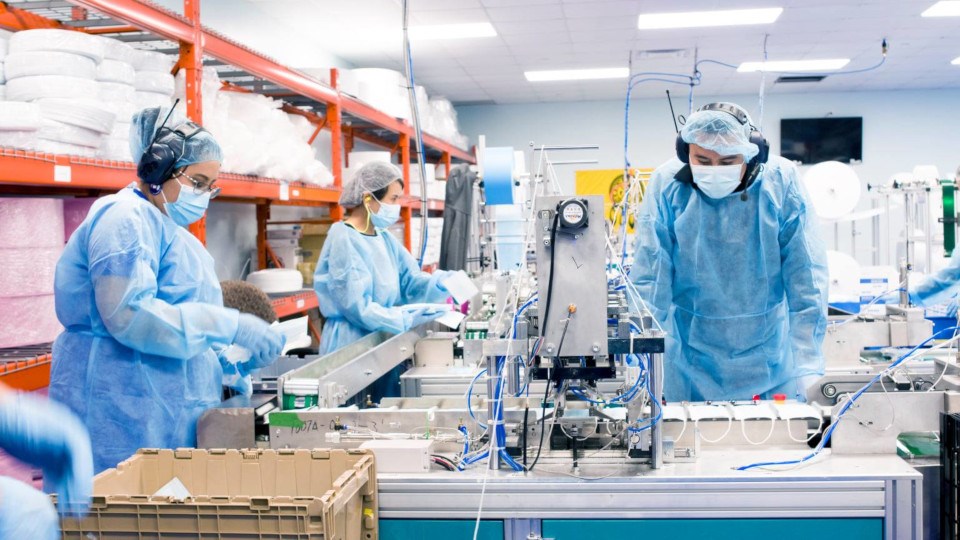On its surface, First Nations Procurement Inc. (FNPI) functions to acquire goods and services for clients around the North. But its real value, said president Matthew Owl, is its ability to capitalize on opportunity.
Located on the Sagamok Anishnawbek First Nation, a little over 100 kilometres west of Sudbury, FNPI was launched in 2017 in an effort to land procurement contracts with the provincial and federal governments.
It later became a useful channel to connect with European businesses seeking to expand their distribution into North America.
“That’s what led to what FNPI is now, because we recognized that there are companies out there that are looking at penetrating the North American market, and what better way to do that than with an Indigenous company?” Owl said.
Eight months ago, Owl was brokering partnerships in the procurement of everything from textiles to safety equipment for area businesses in forestry, mining and other sectors.
After the arrival of COVID-19, that conversation naturally turned to personal protective equipment (PPE).
“I began to buy imported product that was already here in Canada, made in China, and I heard a consistent message, and that was: are we buying an inferior product? Is this certified? Is this something that Health Canada recognizes?” recalled Owl, who has an extensive background in commerce and economic development, including a stint with the Waubetek Business Development Corporation.
“So there were a lot of questions being posed there.”
Sensing an opportunity, he reached out to manufacturers and, through “a series of fortunate events,” connected with Dent-X Canada, a Vaughan-based company that produces digital radiology equipment.
Fortuitously, Dent-X was looking to branch out as well, and the two companies quickly realized the benefits of a partnership.
Industrial land in northern, rural communities is cheaper than that in large, urban areas, and many First Nations have newly built industrial parks awaiting tenants, Owl said. That presents a saving on the cost of operation.
But there’s also the socioeconomic impact.
Owl is a firm believer that the answer to addressing poverty and addictions facing many Indigenous communities is through economic development. Investments in these communities create stable and meaningful work for Indigenous residents, which, in turn, fuels hope.
“When you’re offering a solution where you have incentives to come do business with the local First Nation communities, you create something that’s good for the local economy, you create something that works for Industry Canada, and you build cross-cultural partnerships, which, I think, is paramount here,” he said.
Want to read more stories about business in the North? Subscribe to our newsletter.
In November, FNPI and Dent-X cut the ribbon on the first of two manufacturing plants that will produce FN95 masks – the ‘FN’ stands for First Nations – to be sold across Canada.
Situated on the east end of Manitoulin Island, the facility is one of the first tenants in Wiikwemkoong Unceded Territory's light industrial park. The plant employs 50 residents.
Chief Duke Peltier called the development an important step in helping his community become economically independent and self-reliant.
“Like all other Ontarians, our Anishinaabe citizens appreciate the security of a full-time job and all the benefits,” Peltier said during the plant’s grand opening. “Who doesn’t want or need a regular paycheque?”
A second FNPI/Dent-X plant in Sagamok came online this past fall, but its grand opening has been postponed due to the ongoing provincial lockdown. Owl said an official ceremony marking its launch will take place once it’s safe to do so.
He’s proud of FNPI’s role in bringing the manufacture of PPE to the North. But in order for the initiative to reach its full potential, he said, government needs to support the endeavour.
At the start of the pandemic, when there was a serious shortage of PPE, Canadian manufacturers were encouraged to pivot production to fill demand for a made-in-Canada solution.
FNPI and Dent-X answered that call, Owl said, and yet they’ve had difficulty landing the lucrative government contracts that would help keep them afloat.
Though they do have other clients purchasing their product, Owl said they now have a surplus of 14 million units as they wait on an anticipated contract from the Office of Small and Medium Enterprises, Ottawa's procurement system designed to benefit small, regional businesses.
“The investment that’s gone into the manufacturing of this equipment should see some sort of equitable return in terms of purchasing product,” Owl said.
“We did answer the call, and it’s now time for the provincial and federal governments to step up to the plate and say, yes, we hear you, we are here, and we are going to start purchasing.”
If that happens, Owl said, there will be opportunity for expansion – the potential for more plants, more jobs, and a diversified product line.
He’s already received inquiries from parties interested in replicating the FNPI/Dent-X model, and he envisions, eventually, expanding it nationwide.
“I’m hoping that, at some point, we look back at this and say Indigenous people are actively involved in all facets and all sectors across Canada.”
